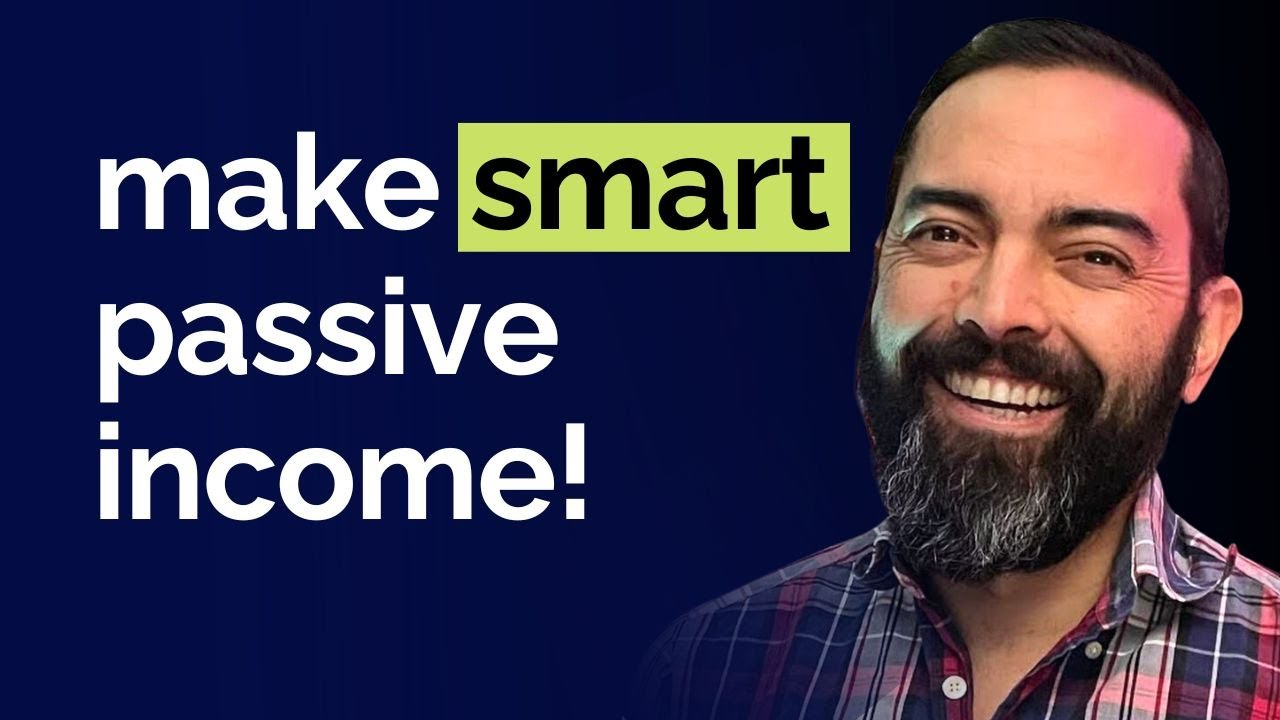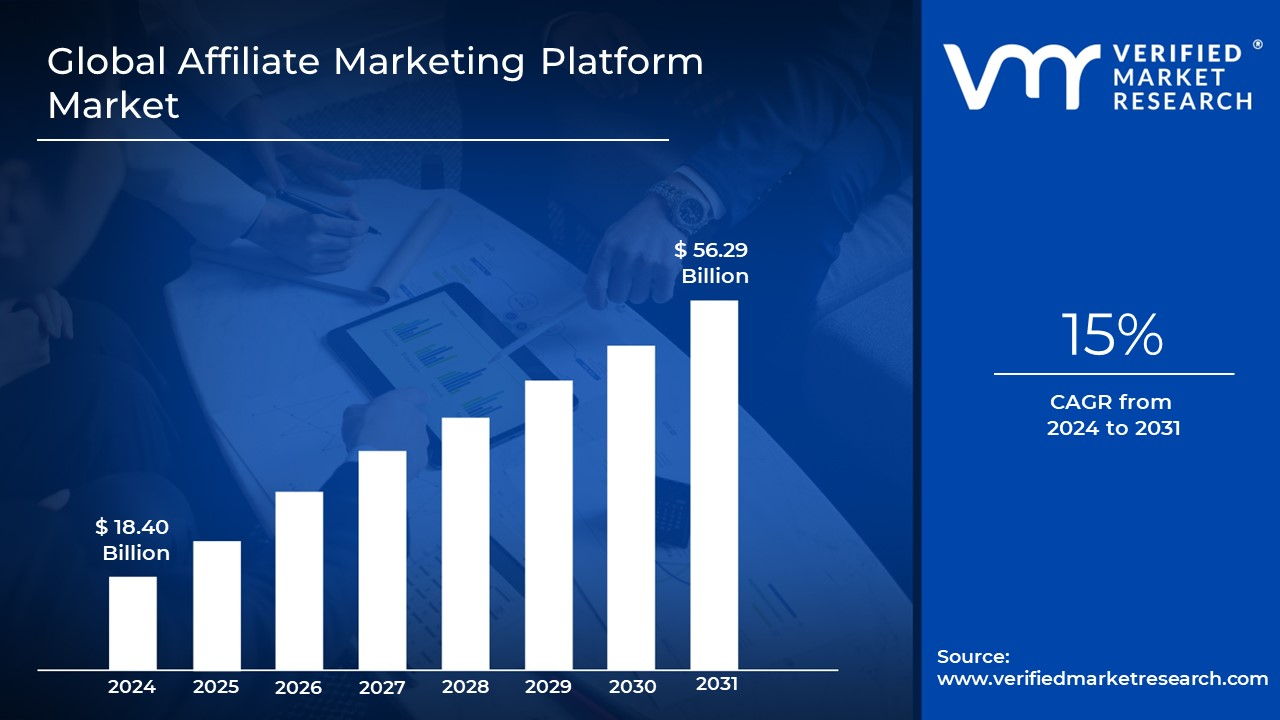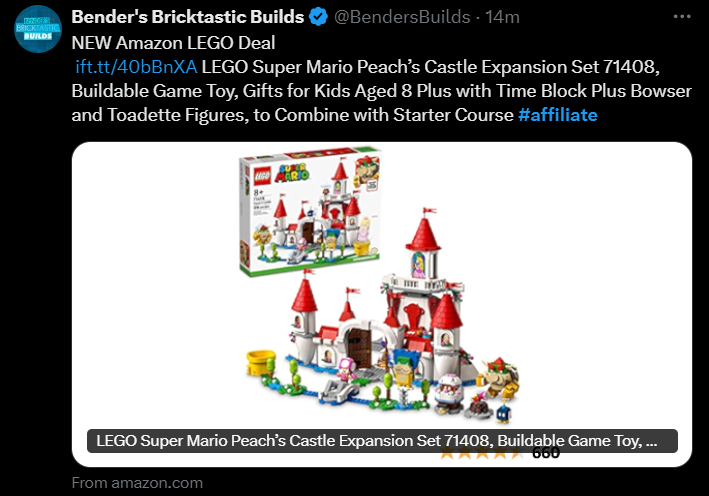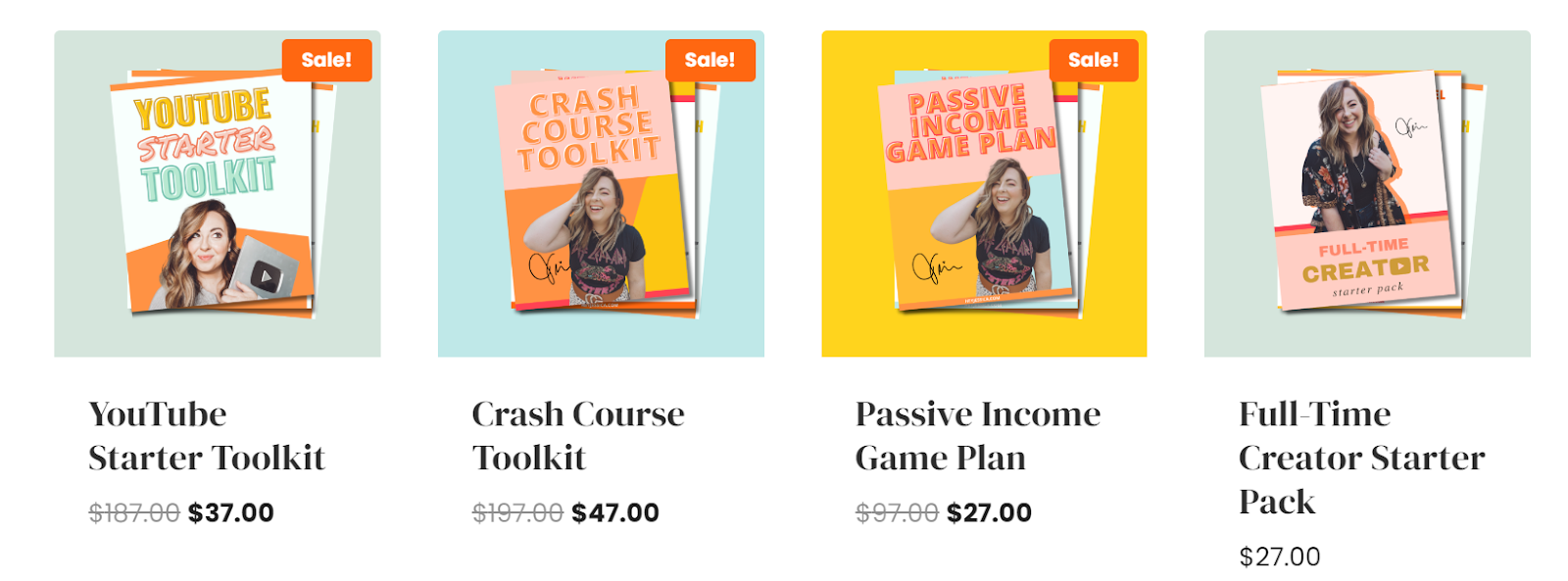Affiliate marketing is a great way to make money online - and now you don't have to even show your face. Find out how in this guide.
Key takeaways
- Faceless affiliate marketing lets you build a profitable business through blogs, podcasts, email, and ebooks without revealing your identity.
- Multiple commission structures exist including one-time payments, recurring subscriptions, and cookie-based tracking that pays even if customers buy later.
- Success in faceless affiliate marketing depends on providing genuine value through quality content rather than personal brand recognition.
As a content creator, you might want affiliate marketing to be something other than your full-time focus…but it's worth considering as a passive revenue stream.
Affiliate marketing is good money. The numbers speak for themselves: Statista projects the U.S. affiliate marketing industry to reach $15.7 billion by 2024, showing the potential in this space.
And here's the exciting part: you no longer need to be a public face to build a thriving affiliate business.
If you're camera shy or value your privacy, there's never been a better time to explore affiliate marketing as an additional income source.
Pat Flynn, founder of Smart Passive Income, shares an interesting observation: "Some of the most successful affiliate marketers I know have never shown their face or revealed their identity. They let their content and value speak for themselves."

This is particularly evident in spaces like technology reviews, personal finance, and product comparisons, where your expertise and the quality of your content matter far more than your personal brand.
Affiliate marketing 101
Affiliate marketing is like being a digital salesperson but with a twist – you never have to stock inventory, ship products, or deal with customer service. You connect people with products or services they might love and earn a commission when they make a purchase. You can think of affiliate marketing as digital dropshipping.
Content creators are building entire businesses around affiliate marketing by writing detailed product reviews on their blogs, making engaging YouTube videos, or sharing their authentic experiences on social media.
And it's growing impressively – the industry is on track to hit $56 billion by 2030, with more than 80% of brands now running affiliate programs.

The most successful affiliates tend to focus on specific niches.
Technology and software reviews, as are health and wellness products, are huge right now. Personal finance and online education continue to be strong performers too. Read our guide for a full list of the best affiliate marketing niches.
There are several ways to earn from affiliate marketing. The traditional route is where you earn a percentage of each sale. But, you can also get paid for driving traffic or generating leads.
Platforms like Whop have opened up interesting opportunities – affiliates can now earn from promoting access to paid communities, digital products, and specialized services. Just check out the Whop Affiliates page to find out how.
Some affiliates even build steady income streams through subscription-based products, earning recurring commissions month after month.
See how you can become an affiliate marketer without your own website in our guide.
How to do affiliate marketing without showing your face
Thinking about getting into affiliate marketing but not sure about putting your face out there? Makes total sense!
Many content creators prefer keeping their affiliate projects separate from their main work - and for good reason. It lets you experiment with different niches while keeping your personal brand focused on what you do best.
Plus, you can build multiple income streams without having every project tied to your name.
Pretty neat, right? Let’s look at how affiliate marketing can work for you — in a faceless context.
Blogging
Thinking about getting into affiliate marketing but prefer to keep a low profile? Blogging might be exactly what you're looking for.
Unlike video content or social media, you can build a thriving affiliate business through written content alone – no camera required.
Your blog becomes your platform for sharing genuine insights and solutions with your audience. You can weave product recommendations naturally into helpful content.
When Adam Enfroy launched his blog in 2019, he focused entirely on reviewing business software and digital tools. He steadily grew his monthly affiliate income by writing detailed, hands-on reviews of everything from website builders to email platforms.
The good news? In a recent video, he shares what it takes to go from 0 to $10,000 monthly in 2024 by affiliate marketing with the help of AI-assisted blog content. He talks about creating an AI content machine to help produce a high volume of high-performing articles for any niche.
Adam also covers good content examples, the ideal content structure, and affiliate marketing quick math, or simply what to realistically expect in terms of the number of affiliate link clicks and conversions.
So how do bloggers earn commissions for recommending software?
In three ways:
- One-time commission: This is usually 20-50% of the first payment. So, for example, if you promote a $100 software with a 30% commission, you earn a one-time $30 bounty.
- Recurring commission: This means you earn a percentage of what your referral pays monthly/yearly. Example: If someone signs up for a $50/month tool with a 20% recurring commission, you earn $10 every month they stay subscribed.
- Cookie duration: This affiliate avenue is slightly more complex. Say you share an affiliate link for Photoshop, and a reader clicks your link on Monday but doesn't buy. If the cookie duration is 30 days, you'll still earn a commission if they purchase anytime within those 30 days.
You might find yourself writing in-depth software comparisons, crafting detailed product reviews, or developing step-by-step tutorials.
The best part? Once you publish a well-researched post, it keeps working for you, especially when it starts ranking well in search results.
Podcasts
Podcasting is another great way to build an audience and generate income while staying comfortably behind the microphone. Your voice becomes your brand, and you can naturally weave product recommendations into your conversations and content.
The magic of podcast affiliate marketing lies in its personal touch. When listeners tune in regularly, they develop trust in your recommendations – especially when you share authentic experiences with products or services.
The key is using unique promo codes or special links that track back to your affiliate account.

In my podcast Freelance Writing Coach, which I co-host with Emma Siemasko, we share everything we know about the freelance writing business while naturally incorporating affiliate partnerships for tools we love and use via on-podcast sponsor rolls, newsletter promotion, and social media collaborations.
These affiliate relationships include tools and products like ButterDocs, B2B Writing Institute, Growthtrackers, and more.
- Best podcast hosting platforms (including free and low-cost options)
- How to get podcast sponsors (and where you can find them)
Social media
Social media platforms offer unique ways to weave affiliate content into your regular posts. Whether it's through Instagram Stories' swipe-up features, Twitter threads, or LinkedIn carousels, you can share valuable insights while incorporating product recommendations naturally.
It's an engaging way to share recommendations while building your personal brand – and contrary to what many think, you don't always need to show your face in every post.
Bender's Bricktastic Builds, goes live on YouTube every Sunday with Lego enthusiasts joining in to watch him build Lego.
On Twitter, he regularly posts about Lego deals (see below). Notice the #affiliate tag at the end? It’s a great way to maintain a steady stream of earnings while he does what he loves.

Check out our complete guide to the TikTok affiliate program: How you can earn commission on TikTok. Plus, take a look at these faceless TikTok reel ideas.
Email marketing
One of the best things about email affiliate marketing is its simplicity - you don't need to reinvent your newsletter.
You're already sharing valuable content with your readers. Now, you only need to weave product recommendations into those existing stories and insights. No need for separate "promotional" emails that might feel forced or sales-y.
Let me share a great example. Chris Bibey publishes a daily freelancing newsletter called “Freelance Framework” that lists companies looking for freelancers worldwide.

Each newsletter has an affiliate sponsor boldly advertised at the top. The prime logo placement gives the brand maximum visibility to its potential customers (the newsletter readers) while helping fund Chris’ efforts.
- Must-see email newsletter examples to inspire your next venture
- How to create and launch your very first newsletter
Ebooks
Ebooks are another great faceless affiliate marketing avenue. You can create a useful ebook, add relevant affiliate links within the content, and then let it do its thing.
Let's say you're knowledgeable about personal finance. Write an ebook sharing your insights, and as you explain concepts, you naturally mention helpful tools and resources.
These become your affiliate links, but they feel like they need to be more salesy because they genuinely help your readers solve problems. You can either sell your ebook on Amazon Kindle (making money from both sales and affiliate clicks) or share it freely on social media. Either way, once it's out there, it keeps working for you around the clock. Whether someone downloads it at 3 AM or 3 PM, they'll see your affiliate recommendations - you don't need to promote it actively.
Jessica Stansberry is an interesting example. She started as a YouTube content creator focused on business and productivity tips. Leveraging that experience, she created several ebooks about content creation and online business.

She promotes planning and productivity tools like Trello and Asana, video equipment and editing software, course creation platforms, and more through these ebooks and her broader platform.
- How does affiliate marketing work
- Does affiliate marketing makes money
- How to market affiliate programs
- Best affiliate marketing courses
The most popular affiliate programs this year
Want to tap into some of the biggest names in affiliate marketing? Major platforms like Amazon Associates and LTK (formerly LikeToKnow.it) offer unique opportunities for faceless affiliate marketing.
Amazon's program is a fantastic starting point. You can earn anywhere from 1-20% commission on practically anything they sell. When someone clicks your link, you'll earn commission on whatever they buy within 24 hours, and if they add items to their cart, this extends to 90 days.
LTK caters more to lifestyle, fashion, and beauty niches. They typically offer higher commission rates (10-25%), but here's the catch - it's invitation-only. You'll need to apply and prove your worth. But once you're in, you can access powerful tools and connections with thousands of retailers.
Both platforms give you solid tracking dashboards to monitor your progress.
Remember that Amazon wants you to be upfront about affiliate links and maintain regular sales. At the same time, LTK focuses more on seeing quality content and engagement - so keep those standards high, even with a faceless brand.
Faceless affiliate marketing: what you need to know before you start
Navigating affiliate marketing as someone building a faceless brand requires careful attention to both legal requirements and ethical considerations. A commitment to establish trust and maintain transparency should be at the core of your strategy.
The Federal Trade Commission requires clear disclosures about affiliate relationships, and they're quite specific about handling these. You can't just drop a quick "#affiliate" or hide the disclosure at the bottom of your content. Instead, make your disclosures prominent and unmistakable. Place them where your audience will see them before encountering affiliate links.
Some quick tips:
- Promote authentic products: Make sure you've personally tested or thoroughly vetted any product you promote. If you wouldn't spend your own money on it, don't recommend it to your audience.
- Ensure audience alignment: The product should genuinely solve problems or fulfill the needs of your specific audience. Don't promote something just because it offers high commission rates.
- Research the company's reputation: Look into its customer service track record, return policies, and how it treats its affiliates. Your reputation becomes linked to it (yes, even as a faceless brand).
- Deliver value: Does the product offer genuine value at its price point? Your audience trusts your judgment, so avoid overpriced or low-quality offerings.
- Consider long-term relationship potential: Are you promoting products you can stand behind long-term? One-off promotions might bring quick profits, but building trust with consistent, reliable recommendations is more valuable.
Build a successful faceless affiliate marketing business with Whop
Ready to build a successful affiliate business? What really matters is the value you bring to the table.
Whop has everything you need to make money with affiliate marketing. If you're just getting started on your affiliate journey then you can join a course or a community on Whop and develop the skills you need to succeed.
From mastering affiliate marketing on TikTok to learning how to grow your affiliate program, you can find it all on Whop. Just head to Whop and find the right community or course for you.
Or, if you are ready to earn some big affiliate income, become a part of the Whop affiliate program. You can promote individual courses, communities, software and tools, but you can also earn money by referring creators to sign up and start selling with Whop. With Whop's affiliate program you can earn up to 30% recurring revenue for life.
FAQs
What is faceless affiliate content?
Faceless affiliate marketing involves creating content that promotes products without showing yourself on camera. This is done through written content like blogs, ebooks, and review articles, as well as screen recordings, voiceovers, and product demonstrations to review and recommend items. Creators earn commissions through affiliate links.
What are some faceless affiliate marketing niches?
Some profitable faceless affiliate marketing niches include digital products (online courses, ebooks), home fitness equipment, pet supplies, gardening tools, sustainable living products, and productivity software. These niches allow you to promote products without revealing your identity while staying authentic.
Can you do affiliate marketing without making videos?
Yes. You can do affiliate marketing through blogging, email newsletters, social media posts, or written product reviews. Many successful affiliates focus on written content and SEO rather than video. Pinterest and Instagram photos can work great, too — no video required.
Is faceless affiliate marketing worth it?
Faceless affiliate marketing can be profitable but requires significant effort to build trust without showing your face. While it's possible to succeed, you'll need strong content creation skills and patience to establish authority through valuable, authentic content.


